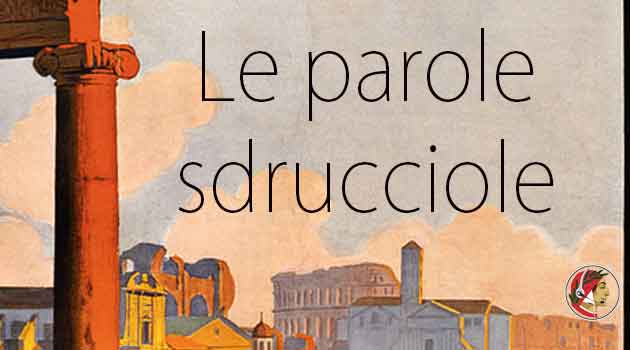The stress on Italian words can be on different syllables. Let’s learn different scenarios and rules.
-
Accento piano. (plain stress)
The vast majority of Italian words has the stress on the penultimate syllable, hence the musical cadence of our language. If you have doubts on a word and need to guess, that’s the easiest way to go. – e.g – Lavoro, Matita, Spaghetti, Vacanza…
-
Accento sdrucciolo. (third to last)
The stress is on the terzultima sillaba, third to last, and it’s not uncommon. There are rules helping us to identify this family of words. Please see below. – e.g. – Nuvola, Davide, Napoli, Gomito …
-
Accento tronco. (truncated stress)
The stress is on the last syllable. In this case, we have to write it. Some words are: città, perché, vanità, caffè…
In some rare cases, the stress can fall on onte fourth or fifth to last syllable.
Le parole sdrucciole
The most confusing and consistent group of words after the parole piane is the parole sdrucciole, with the stress on the third to last syllable. We can identify some predictable patterns typical of the sdrucciole words.
-
Nouns and adjectives ending in -abile, -aceo, -evole, -ibile, -ilico, -ognolo, -oide, -esimo:
e.g. – mangiabile, violaceo, confortevole, impossibile, basilico, verdognolo, celluloide, undicesimo.
-
Words ending in -agine, -aggine, -edine, -igine, -iggine, -udine, -uggine:
e.g. voragine, stupidaggine, salsedine, origine, lentiggine, solitudine, ruggine.
-
Words or Greek origin ending in -cefalo, -crate, -gamo, -geno, -mane, -stato, -ttero:
e.g. macrocefalo, burocrate, poligamo, ansiogeno, megalomane, termostato, elicottero.
-
Words of Latin origin ending in -fero, -fugo,-pede, -voro:
e.g. calorifero, ignifugo, palmipede, carnivoro.
Experience will help you to understand and remember when the stress is not piano. If you have questions, get in touch with comments or email. Thanks for reading.

